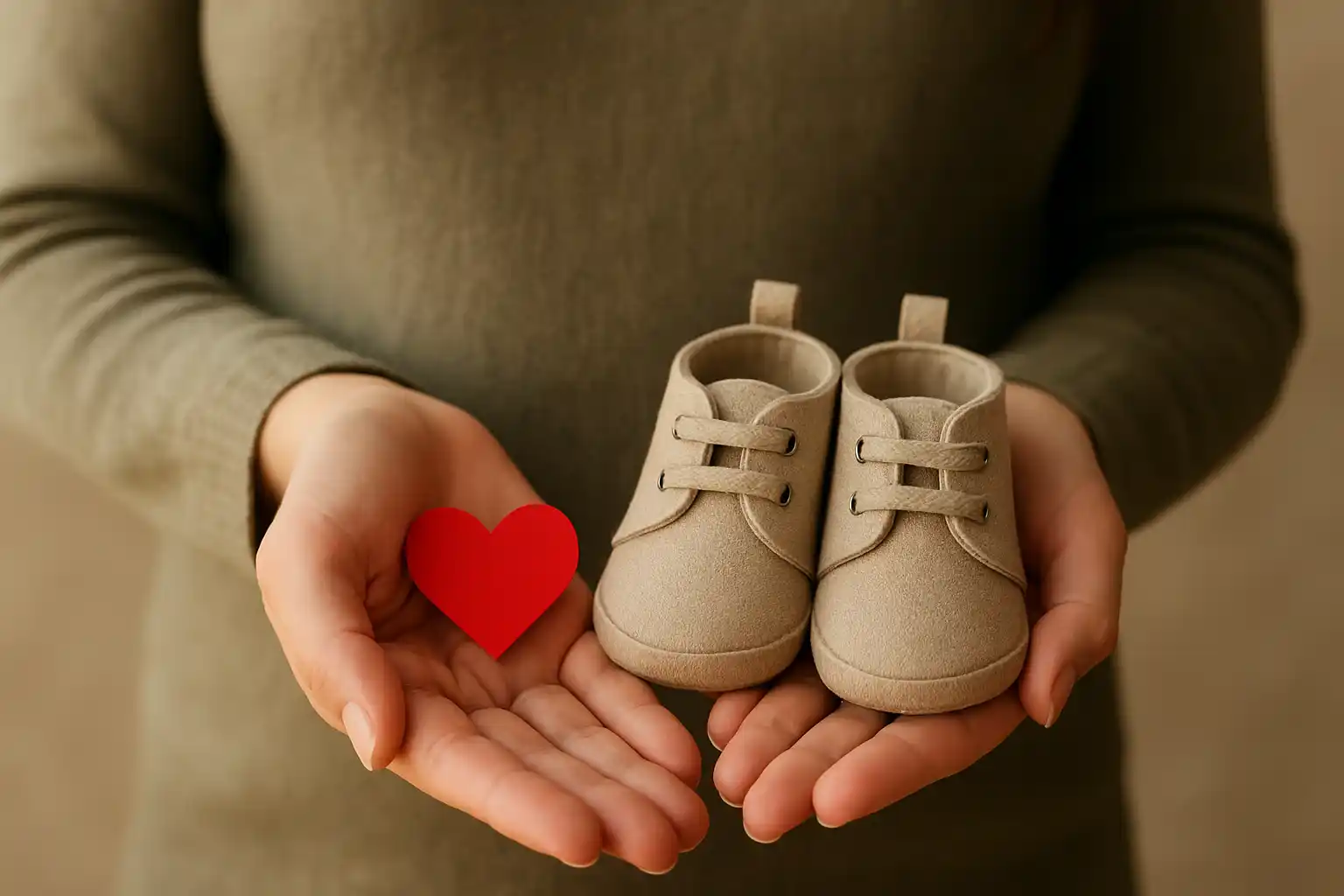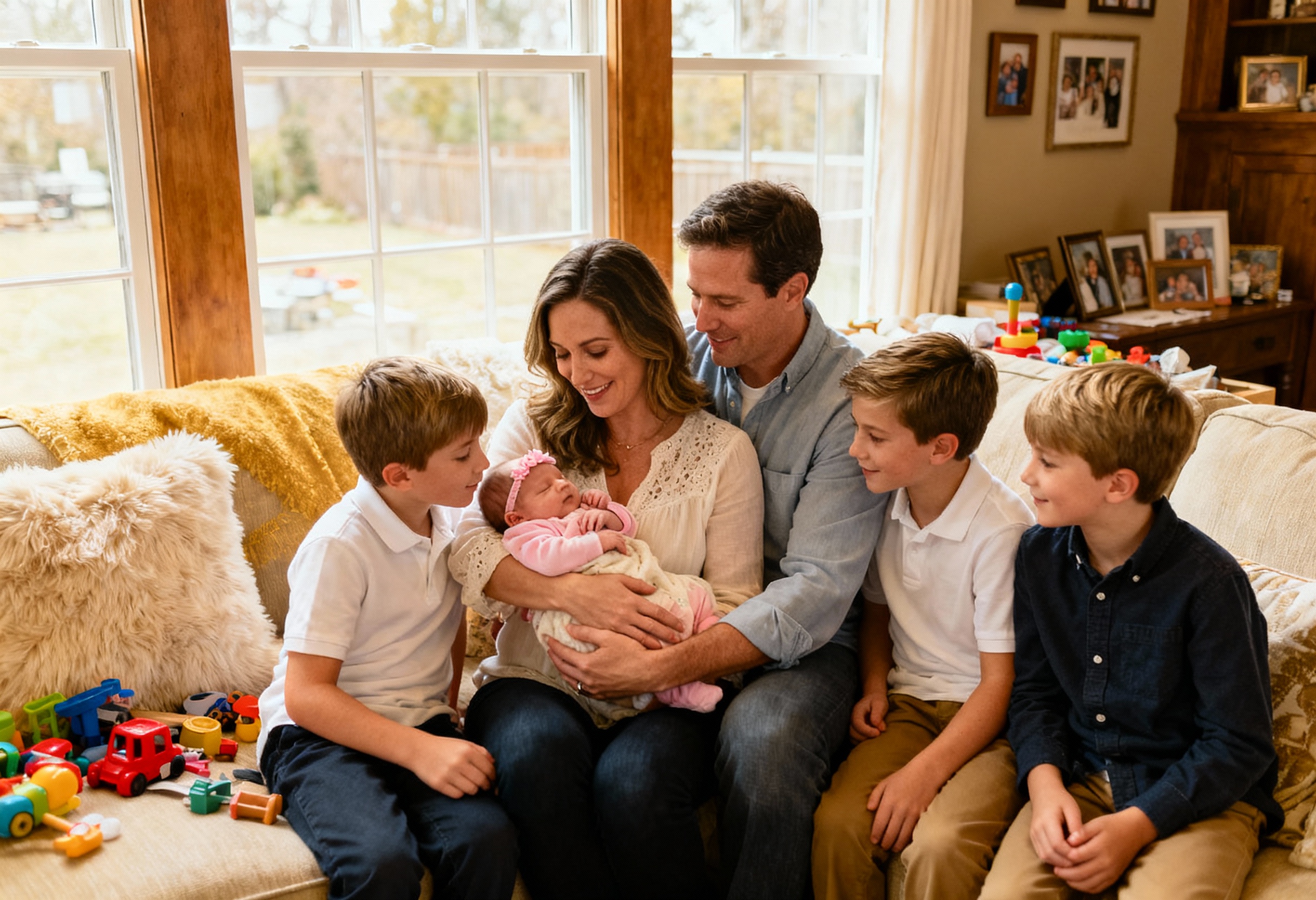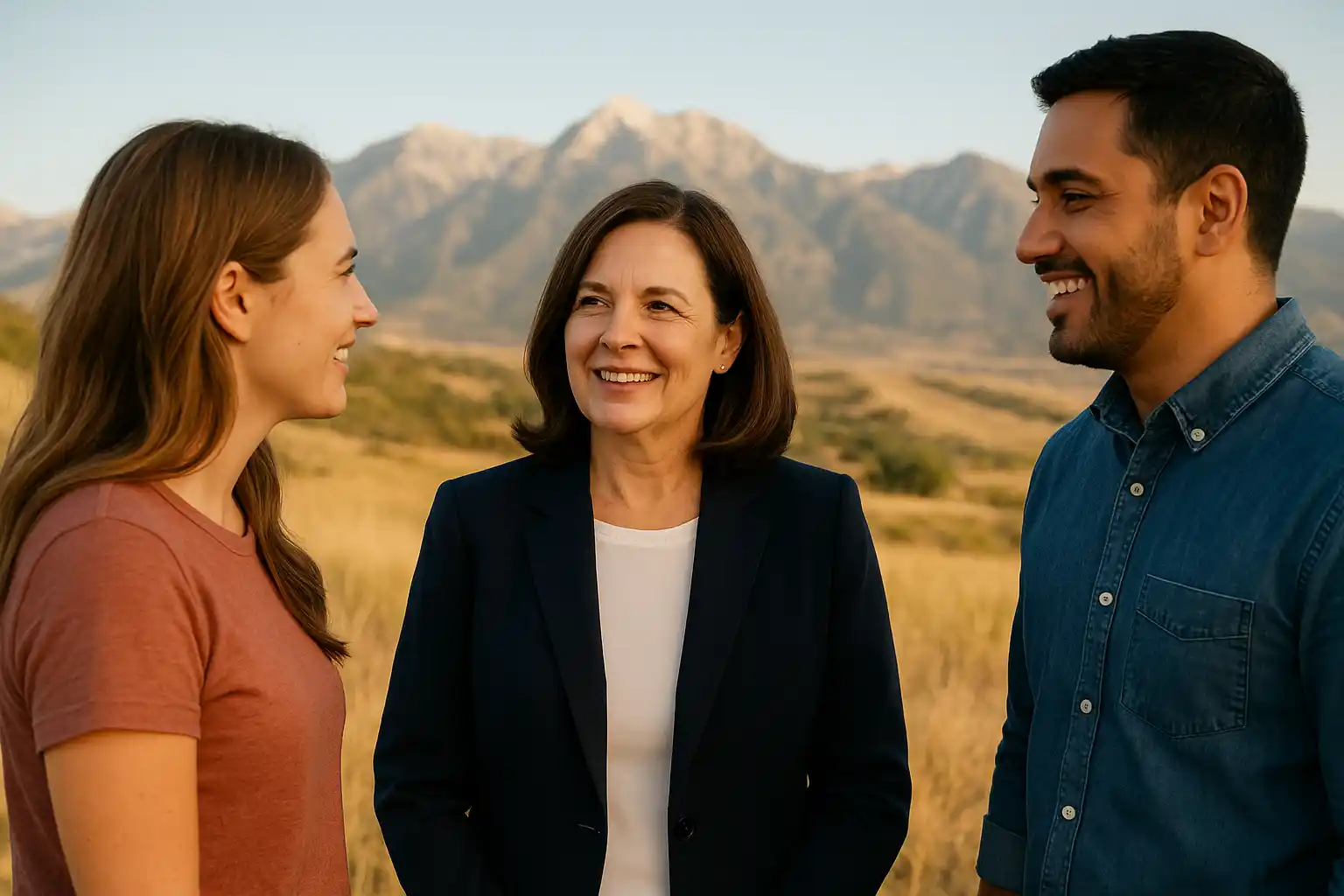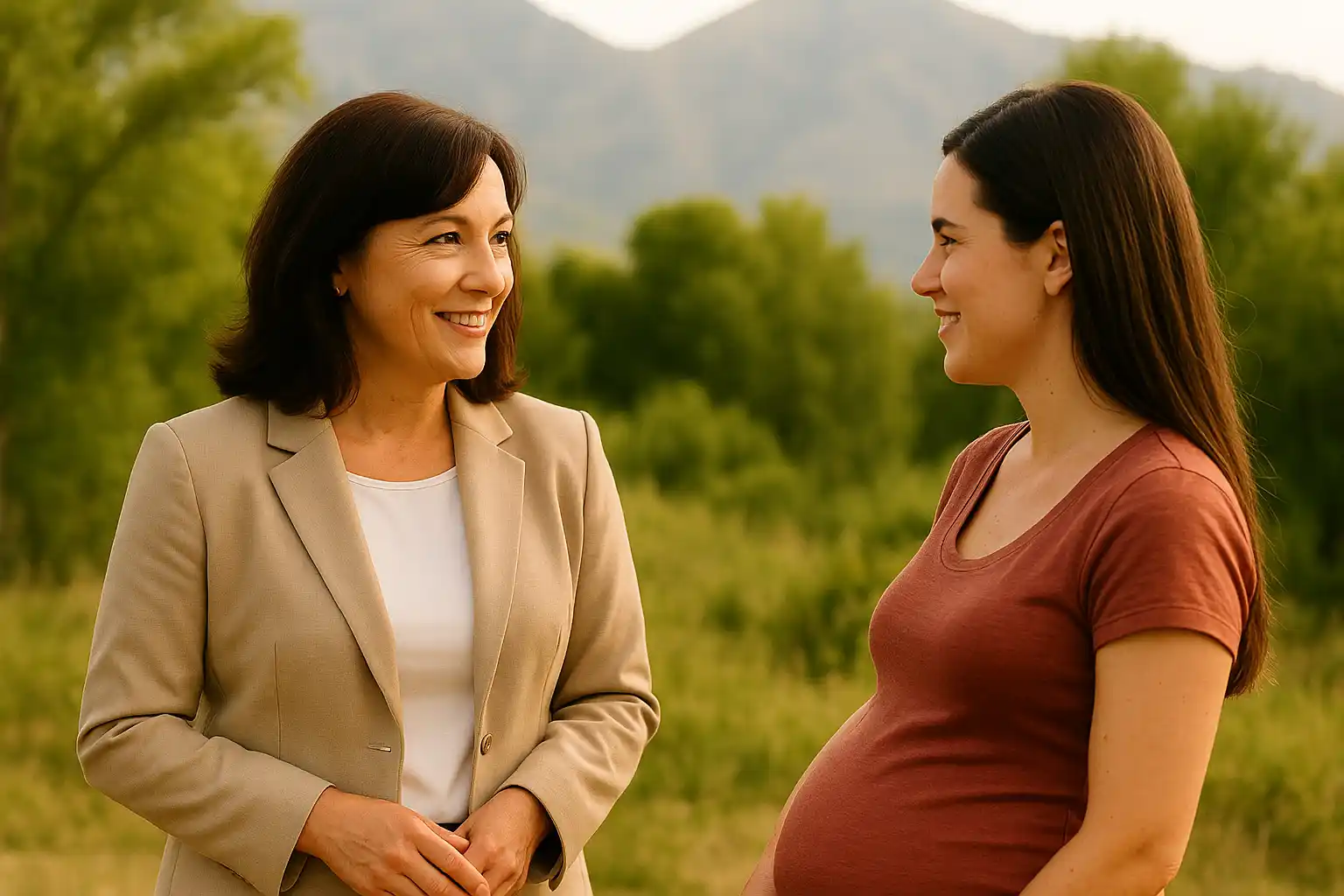Utah Birth Mother Rights Against Coercion Claims and Geographic Restrictions

Lynea Krukiewicz brings unmatched credibility to discussions about birth mother rights, having placed her daughter for adoption 35 years ago and dedicated decades to advocacy work. As a founding member of Life After Placement and an active participant with the Utah Adoption Council, she has directly influenced legislative language and supported countless birth mothers through their journeys. Her extensive experience spans from navigating her own semi-open adoption and reunion to organizing community support events and challenging policy makers to include birth mother voices in adoption legislation.
In this episode of Adoption Utah, host Donna Pope and Laraine Moon explore controversial topics with Lynea, examining claims of coercion, interstate adoption restrictions, and the fundamental question of who truly knows what serves a child's best interests. This conversation addresses misconceptions that undermine birth mother intelligence while highlighting the ongoing need for respectful, comprehensive support systems.
Legislative Intent Meets Reality
Utah's adoption statutes recognize that unmarried birth mothers deserve privacy, timely decision-making rights, and assurance about adoption permanency. These legal protections acknowledge the challenging circumstances birth mothers face while affirming their capability to make informed choices. However, the gap between legislative intent and practical implementation often leaves birth mothers navigating complex systems without adequate support.
Lynea Krukiewicz's involvement in refining Utah's adoption laws provided firsthand insight into how statutory language affects real women. The process of updating outdated regulations required careful attention to wording that would respect birth mothers while providing necessary legal frameworks. This legislative work demonstrated the importance of including birth mother perspectives in policy development rather than making assumptions about their needs and capabilities.
Utah has historically maintained high adoption rates, with the Deseret News reporting that Utah has the nation's highest child adoption rate, largely influenced by cultural emphasis on traditional family values. According to research from Baylor University, birth mothers in a study of 223 participants reported a mean satisfaction score of 3.11 on a scale of 1 to 5, with nearly 70% maintaining periodic contact with their adopted children, indicating that proper support leads to positive outcomes.
Addressing Coercion Misconceptions
Claims that birth mothers are coerced, manipulated, or trafficked across state lines particularly frustrate long-term advocates who witness the thoughtful consideration these women bring to their decisions. Such allegations essentially suggest that pregnancy renders women incapable of rational thought, which contradicts both research findings and lived experiences of birth mothers themselves.
Studies consistently show that birth mothers demonstrate careful deliberation when making adoption plans. Research published in the journal Families in Society indicates that birth mothers typically spend weeks or months evaluating their options, examining their resources, support systems, and long-term goals before reaching decisions.
In Utah specifically, birth demographics provide context for these discussions. According to the Utah Department of Health and Human Services, in 2023 there were 44,992 live births to Utah residents, with birth rates consistently higher than national averages. The March of Dimes reports that of all live births in Utah during 2021-2023, only 2.7% were to women under age 20, while 54.2% were to women ages 20-29 and 40.2% were to women ages 30-39. These statistics contradict stereotypes of young, unprepared mothers making impulsive decisions.
Interstate Support Access
Current legislative proposals seek to restrict birth mothers from working with agencies or families outside their home states, effectively landlocking women during vulnerable periods. These restrictions limit access to specialized services, preferred adoptive families, and comprehensive support systems that may not exist within state boundaries.
The comparison to other healthcare decisions highlights the arbitrary nature of these restrictions. Women routinely choose doctors, hospitals, and specialists in neighboring states based on quality of care, insurance coverage, or personal preferences. Birth mothers deserve the same freedom to access adoption services wherever they find the best fit for their specific needs and circumstances.
Foster care adoption provides an instructive contrast, as agencies regularly search nationwide for suitable families when placing children from state custody. According to the Adoption and Foster Care Analysis and Reporting System, interstate placements in foster care adoption are regulated by the Interstate Compact on the Placement of Children, demonstrating established systems that enable cross-state placements for children's benefit.
Birth mothers considering adoption should have access to:
Comprehensive counseling services that explore all available options
Medical care coordination throughout pregnancy and delivery
Legal representation independent from adoptive families
Financial support for pregnancy-related expenses when needed
Geographic flexibility in choosing agencies and families
Post-placement resources for ongoing emotional support
Community Support Networks
The annual birth mother dinner organized by Lynea exemplifies respectful support that honors women's experiences rather than treating them as charity cases. These events provide elegant dining experiences with live music, creating environments where birth mothers feel valued and celebrated rather than pitied or judged.
Life After Placement addresses the long-term support gap that many agencies leave unfilled after placement occurs. Birth mothers need ongoing community connections, not just pre-placement services, to process their experiences and maintain healthy perspectives on their decisions. This sustained support helps women navigate complex emotions like grieving one child while pregnant with another.
The transformation that attendees experience at these events reflects the impact of respectful recognition. Women often arrive feeling isolated or uncertain but leave with renewed confidence and connections to others who understand their experiences. According to research from the National Center for Biotechnology Information, birth mothers who participate in support groups show significantly better adjustment outcomes compared to those who lack community connections.
Utah Demographics Context
Utah's unique demographic landscape provides important context for adoption discussions. The state maintains a birth rate of 13.0 per 1,000 residents in 2023, significantly higher than the national rate of 10.7 per 1,000. Additionally, Utah's teen birth rate for ages 15-19 was 8.0 births per 1,000 females in 2023, well below the national rate of 13.2 per 1,000.
The racial and ethnic composition of Utah births also influences adoption conversations. Of all live births in Utah during 2021-2023, 71.2% were White, 19.3% were Hispanic, 3.8% were Asian/Pacific Islander, 1.3% were Black, and 0.7% were American Indian/Alaska Native, according to the March of Dimes. These demographics help explain the cultural context surrounding Utah's historically high adoption rates.
Policy Recommendations
Legislative discussions about adoption frequently exclude the voices of birth mothers themselves, leading to policies based on assumptions rather than actual needs and preferences. Advocates emphasize the importance of consulting birth mothers directly when crafting laws that affect their rights and options.
Current Utah legislation has improved significantly from previous decades, but advocates continue identifying areas for enhancement. The process of updating adoption laws requires careful balance between protecting vulnerable individuals and respecting their autonomy to make informed decisions.
Effective adoption legislation should expand access to quality services rather than restrict options available to birth mothers. Research from Weber State University found that birth mothers with open adoptions had statistically significantly higher overall satisfaction compared to those with closed adoptions, showing that women make better decisions when their basic needs are met and they have access to comprehensive information and support throughout the process.
Taking Action
Birth mothers demonstrate remarkable strength and wisdom when making adoption decisions, yet society often questions their capability during pregnancy. Lynea Krukiewicz's decades of advocacy work reveal the depth of consideration that birth mothers bring to these choices and the positive outcomes possible when they receive respectful support.
The ongoing legislative debates in Utah reflect broader national conversations about birth mother rights, coercion allegations, and interstate adoption restrictions. These discussions must include birth mother voices to create policies that serve real needs rather than theoretical concerns.
Moving forward, the adoption community benefits from recognizing birth mothers as capable decision-makers who deserve comprehensive support, geographic flexibility, and ongoing respect for their choices. This approach serves everyone involved in adoption while honoring the sacred nature of these life-changing decisions.
Ready to stay informed about adoption advocacy and birth mother rights? Subscribe to the Adoption Utah podcast for continued conversations that center birth mother experiences and challenge misconceptions about adoption decision-making.
Follow or Subscribe to Adoption Utah on your favorite platforms:
Website: www.AdoptionUtah.org
YouTube: @AdoptionUtah
Twitter/X: AdoptionUtah
Instagram: AdoptionUtah
LinkedIn: Adoption Utah
Follow Donna Pope:
LinkedIn: Donna-Pope-41652ba/
Follow Lynea Krukiewicz
LinkedIn: Lynea-Krukiewicz-1b395285/
Website: LifeAfterPlacement.org/
Instagram: LifeAfterPlacement
Facebook: LifeAfterPlacement/
Email: Hi@LifeAfterPlacement.org
Follow Laraine Moon
LinkedIn: Laraine-Moon-11781059/
Follow A Act of Love Adoptions
Website: AActofLoveAdoptions.com
Facebook: AActofLove
Instagram: A_Act_of_Love
Twitter: ActofLoveAdopt
TikTok: @ActofLoveAdoptionsUtah
LinkedIn: A-Act-of-Love-Adoptions
Pinterest: AActofLove
YouTube: @ActofLoveAdoptions







Comments